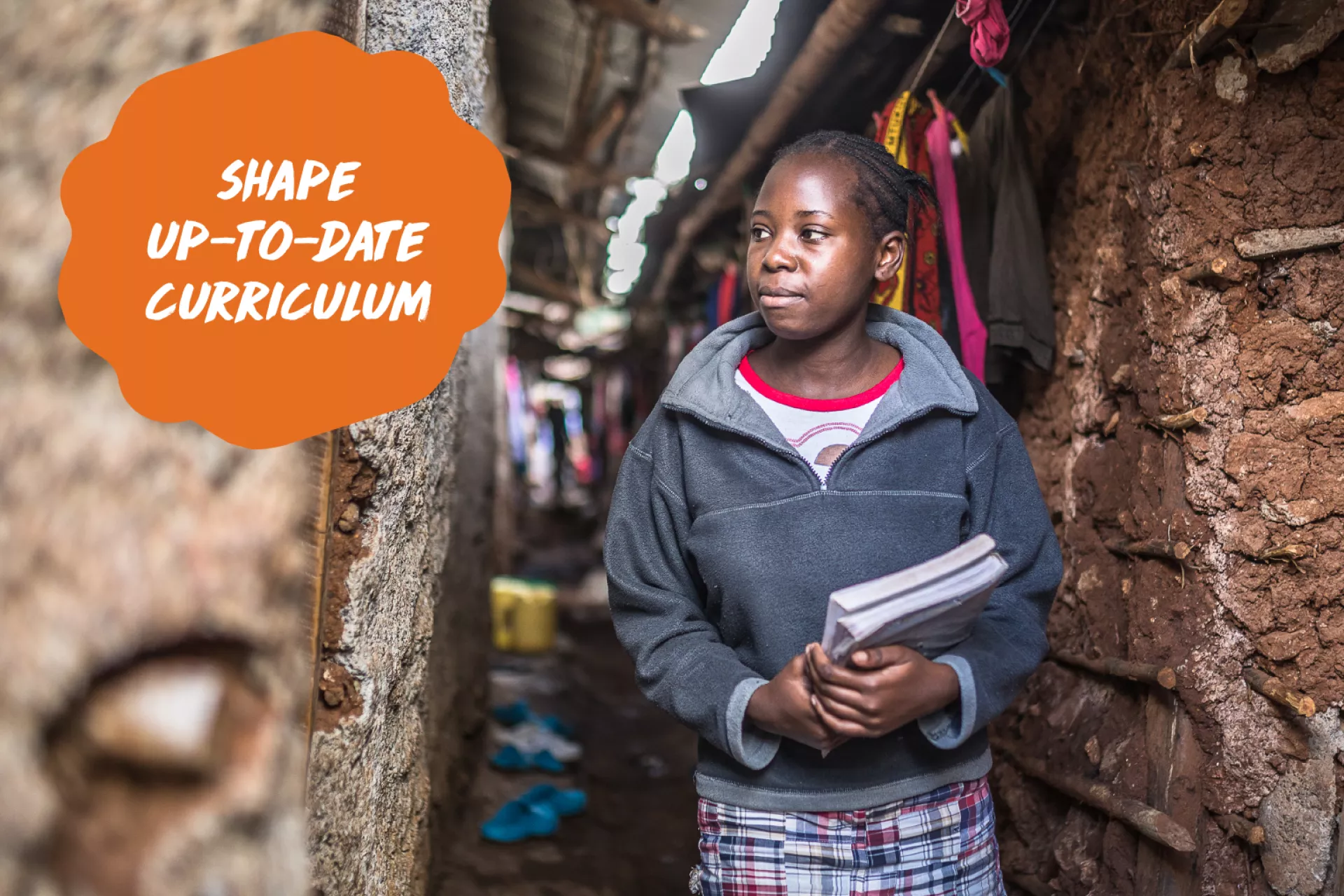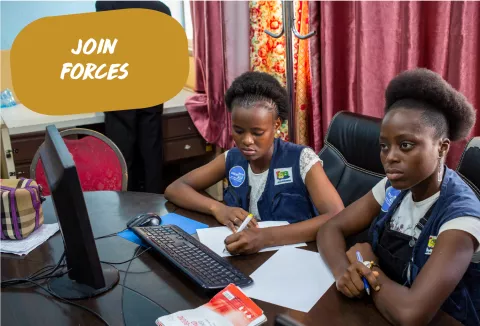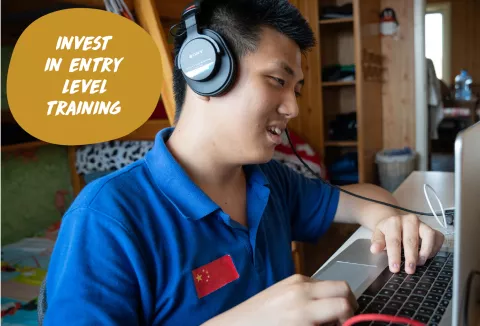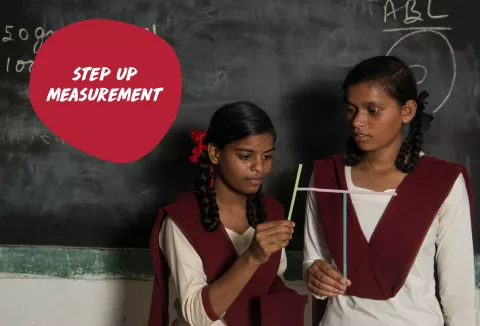Shape Up-to-date Curriculum
Lived experiences matter as much as formal education when it comes to young people developing the full set of skills for work and life.

Schools and other formal education settings are usually where young people develop foundational skills – in other words, literacy and numeracy. But they aren’t the only places to attain skills.
Young people also pick up all sorts of skills when going about their daily lives. And your organization can provide even more routes into skilling for youth.
Most importantly, though, you can help ensure that school and other skilling curricula are updated with the most relevant skills for the future of work.
Steps you can take
Young people need a full set of skills: foundational, digital, entrepreneurial, transferable and job specific. Think about the specific skills your organization demands – and help to keep school and skilling curricula updated.
Communicate the skills needed for the future of work
Insights from your organization can be highly influential. To push for action on skilling, share your take on what new skills mean for your sector and organization.
It’s especially important that private and public organizations talk to each other about what’s needed. Businesses must spell out the skills that young people will need for the future of work, so that government can address gaps in school and skilling curricula.
Events such as the RewirEd Summit and the Transforming Education Summit are a great place to engage at a high level. Talking about skills as they relate to current events and in terms of future trends helps to raise awareness of the skills gap. In turn, this can amplify the call for investment in skilling for youth.
Invest in alternative routes to skill building
Get your organization involved in supporting initiatives like the Entrepreneurial Mindset Curriculum (EMC) and the Global Volunteer Initiative (GVI). Both offer young people alternative routes to honing their skills.
EMC is used to build an entrepreneurial mindset in students and to empower them to take charge of their career path. In India, the aim is to create 10 million young entrepreneurs and 50 million new jobs by 2030. YuWaah (GenU India) is working with government to implement EMC locally and scale it nationally through integration in the formal education system.
At the global level, EMC will be scaled by introducing digitized curriculum content to the Passport to Earning platform; replicating the use of EMC in other countries and regions with UNICEF and other partners’ support; and providing mentorship and seed funding to back student ventures as part of EMC. Your organization can be a central part of this effort.
Similarly, GVI scales youth volunteer programmes in countries around the world to build essential skills needed in an increasingly complex and uncertain environment. Its proven methodology has been successfully deployed in 40 countries.
In just four years, GVI has mobilized over 12 million volunteers, reaching approximately 200 million beneficiaries and delivering results for children and families across a range of issues – from the COVID-19 response and children’s re-enrolment in school to advocacy for clean air. Your support can help GVI to continue to build on this success.
School and skilling curricula must keep pace with the changing demands of the workplace. Inform curriculum development and support alternative skilling pathways at the same time.




